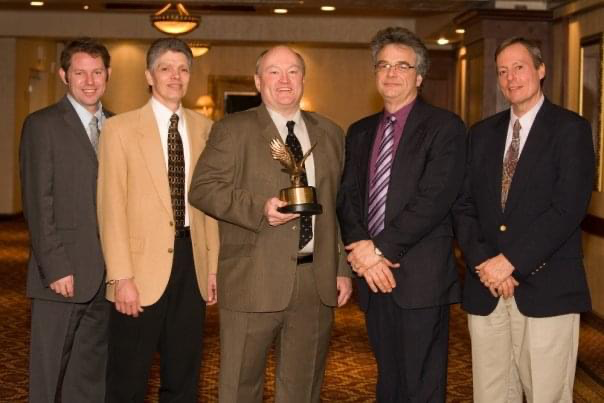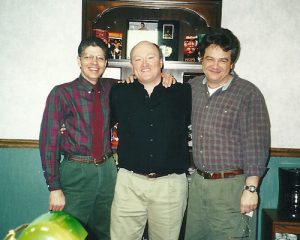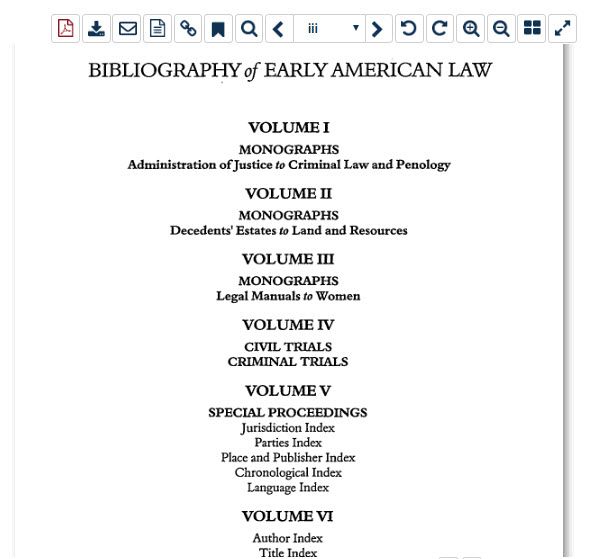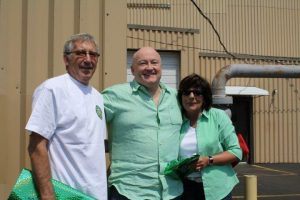In April 1970, a 16-year old junior in high school started his first job as a temporary warehouse worker for William S. Hein & Co., Inc. Many of you may know him as Kevin Marmion—I know him as “Dad.” Throughout the years, my Dad wore many hats at the company, including truck driver, coordinator, manager, Vice President, and President. Today he stands proudly as the CEO. His hard work and dedication have helped mold the company into what it is today.
I once heard the quote, “Behind the success of every small business, there is a family.” The word “family” in this phrase can be both literal and figurative when it comes to describing the Hein Company. Generations of the Hein family have built this business from the ground up. All five of my family members are now working at the company, as well as my sister-in-law. You may also know my uncle, Dale Missert, who recently retired after dedicating 40+ years to the business. We have also worked alongside the Rosati family, who have been a staple at the Hein Company. You see, this small family business is comprised of actual families. With that said, you also gain another family in the people you work with.
Help me celebrate my Dad’s 50th anniversary with the company, alongside Hein’s double birthday, as we take a look at what he considers to be his biggest accomplishments throughout the years.

Innovative Leadership
Kevin attributes many of his accomplishments to two simple trains of thought: (1) listen to the customer and (2) find a way to make the world a better place. Let’s explore how Kevin put these into practice.
Diazo Microfiche
In the late 1970s, William S. Hein & Co., Inc. became one of the first companies to produce non-silver based microfilm, otherwise known as diazo. This was not the preferred type of microfilm as it only lasted 75 to 100 years, whereas silver microfilm was expected to last 300+ years. However, silver microfilm was not durable and easily scratched. Bill Hein Jr. and Kevin decided to take a risk and began producing diazo microfilm only, which was 25% the cost of silver, which in turn was much more affordable for the librarians. They were able to get four times the product in microfilm which could withhold some wear and tear. Looking back, it was the right decision for librarians, as most of the same historical documents were moved online by the 2000s.
Digital Subscription Service
In 1980, the Hein Company became the first company to develop a computerized subscription service written specifically for law libraries. Dan Rosati, also known as “Dan Dan the Computer Man,” was able to turn Kevin’s idea into a successful service. This new system took over 75% of the U.S. law school market, bringing large success to the company and easy access to new material for librarians around the nation.

Acid-Free Government Documents
In the mid-1980s, librarians were frustrated with the low-quality paper used for printing government documents. Librarians were concerned that their valuable government documents would become brittle and damaged over time. Kevin listened to the demands of the librarians and suggested the company switch to printing government documents on acid-free paper. This risk eventually changed the library field as, within three years, the government began to follow suit. The very first title printed on acid-free paper was the U.S. Supreme Court Reports, which was bound in a class A style binding for longevity.
Bibliography of Early American Law (BEAL)
Morris L. Cohen was one of the most famous librarians of all time. He put together the Bibliography of Early American Law, a collection every librarian wanted to get their hands on. Why, you might ask? Well, Morris spent 30 years compiling information on law books published before 1860. In his bibliography, Morris included annotations on why the book was valuable, notes about the author, and interesting facts about the book that no one knew. Over the span of those 30 years, Morris signed two different contracts to have this collection published; however, as time passed both publishers went out of business. Kevin eventually signed a contract with Morris, although some librarians told him not to hold his breath. Kevin knew Morris would never actually finish the collection, as there were always more books to discover. He convinced Morris to finalize the project so all of his hard work could finally be shared. Sure enough, Morris completed the project and Hein published the work in 1998 (of course, Morris continued his research, and a supplement was published in 2003 with more titles and annotations). BEAL was originally sold as a 6-volume print set as well as on CD, composed by Dan Rosati, and later added to HeinOnline. Bibliography of Early American Law was the recipient of the 1999 Joseph L. Andrews Literature Award and remains one of the greatest bibliographies among law librarians.

HeinOnline
In 1995, a business plan to take law journals digital emerged as Kevin realized times were changing. He knew that in order to make this happen, he needed the support of librarians. Four and a half years later, journals were online. Kevin acknowledges that the backing of many librarians helped the launch of HeinOnline, notably Kathy Price from New York University and Judith Wright from the University of Chicago. Public law libraries and law firms began to sign up early on as well, beginning with Regina Smith, Director of Jenkins Law Library, and Jim Shelar, law librarian at Arnold & Porter.
To read an extensive overview of HeinOnline’s history, check out The Invention of HeinOnline: The Story of Hein’s Dramatic Transformation in Response to the Coming of the Electronic Age by Joe Gerken.
Equality for All
Anyone who knows Kevin knows that Muhammad Ali is his biggest icon. Ali, one of the world’s greatest boxers, was also known for being a humanitarian and philanthropist, which inspired my dad to share many of his same morals. In the early days, the only women playing major roles in the company were members of Bill Hein Sr.’s family. Kevin hired Loretta Weisenberg, the first female manager at the Hein Company, not from the Hein family. He also was involved in hiring Mary Scales, the first African American manager to run the bindery. Both of these women were instrumental in the early success of the company and deserved recognition.
Kevin played a main role in developing two free databases: Slavery in America and the World: History, Culture & Law and Gun Regulation in America. He saw the importance of making these documents accessible to the public, and today these databases are being used regularly around the world.
Lastly, Kevin developed the Woman and the Law (Peggy) database which was included at no additional cost to Academic subscribers. The database was dedicated to great women: Ilene N. Hein who cofounded William S. Hein & Co., Inc. in 1961 alongside her husband Bill, and my grandmother, Margaret (Peggy) Marmion, who was an avid supporter of women’s rights.
The Influencers
As I interviewed my father for this post, he recalled name after name of people who influenced him throughout the years and taught him the skills necessary for success. Eugene “Gene” Wypyski, a librarian from Hofstra, would call him every Monday morning and would give him advice about the world, publishing, and being a librarian. He taught Kevin a great deal about the law business and always had new ideas for him.
Igor Kavass and Adolph Sprudz, original co-editors of U.S. Treaties and Agreements, taught Kevin the ins and outs of international law. The two were always suggesting to Kevin and Dan Rosati ways to include international law within the business, a major focus that continues to this day.
Bill Hein Sr., Alan Morris from Clark Boardman Company, Phil Cohen from Oceana, and Ken Barnett from Carswell were all people who started companies. Kevin learned a great deal about negotiating and relations from these successful business owners.
Kevin’s internal mentors at the company include Ilene Hein, who showed Kevin how to run the company through the systems she put in place, and who always emphasized company values. Dick Spinelli had a tremendous influence on Kevin’s career, teaching him about law librarianship, the values of listening to your customers, and the importance of honesty and integrity. Over Kevin’s entire career, the person he learned the most from was Bill Hein Jr. Bill always treated Kevin as his partner and to this day, Kevin acknowledges that he would not have made it this far without the support and guidance from Bill.

Personally, Kevin attributes his success to his wife, and my mother, Barb Marmion. She was there for my father during the ups and downs of his career. She provided him with wisdom and strength at his weakest moments. I witnessed my mother selflessly taking care of me and my brothers when my father would put in long hours at the office. She is the true definition of a strong woman.
And lastly, all the librarians that Kevin came in contact with throughout his 50 years had an impact on his success at the company. He left me with this quote at the end of the interview:
“Librarians are great people. They’re willing to help you, they’re willing to teach you, and if you listen to them, you learn great things.”
The Next Generation
Bill Hein Jr. and my father have since passed the torch to my brother and current President, Shane Marmion, and to Executive Vice President, Shannon Hein. The legacy of the family business continues in no small part thanks to the principles and lessons Kevin Marmion has passed down to the next generation of leaders.
Here’s to Kevin Marmion, who has instilled values of hard work, dedication, and loyalty not only in our family but also in our extended HeinOnline family, as well. I’ll leave you with a Muhammad Ali quote my father uses to this day, “Shake up the world!”



